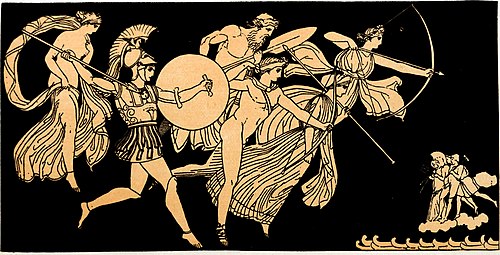Note: If you wish to receive, via e-mail, (1) my weekly newsletter or (2) daily copies of these posts, notify me at [email protected] and indicate which you would like. I promise not to share your e-mail address with anyone. To unsubscribe, send me a follow-up email.
Monday
My posts will be shorter this week as Julia and I are traveling in Wales and the two Irelands, but that doesn’t mean I haven’t been thinking of literature. We visited two museums in Dublin today and saw up close how much the Irish value their writers. Our guide in the Little Museum of Dublin quoted verbatim from Jonathan Swift’s “Modest Proposal” and W.B. Yeats’s “Easter 1916” while the Museum of Literature Ireland practically treats James Joyce as Dublin’s patron saint. In the second venue we watched a video of two actors doing a dramatic reading from Finnegan’s Wake (shoutout to my cousin Faith Conant, who recently completed what may be the world’s most difficult work). We also saw a Joyce letter to Yeats asking for help getting Dubliners published (since, he reported, the printer had not only refused to publish it but destroyed the galleys).
Being a British 18th century literary scholar, I particularly loved all the accounts of Irish authors from that period—but I was miffed that they left out some of my favorites, such as Oliver Goldsmith and Richard Sheridan. I hadn’t realized until I visited the museums, however, that Maria Edgeworth, Bram Stoker, C.S. Lewis, and Iris Murdoch were Irish as well.
Anyway, I came across this wonderful Patrick Kavanagh sonnet in the Literature museum. The Irish have a knack for finding the mythical or epic in the seemingly mundane, and that’s what the 20th century poet accomplishes in “Epic.” I’m assuming that “the Munich bother” is Neville Chamberlain’s futile attempt to appease Hitler in 1938 (at the expense of Czechoslovakia). But while the world is learning how a fascist can seize someone else’s land without consequence, the speaker is feeling diminished by the seeming insignificance of farmers battling over half a rood of rock (an eighth of an acre).
Or at least he thinks it’s unimportant until Homer’s ghost whispers in his ear that he himself “made the Iliad from such a local row.” After all, what makes Ballyrush McCabe’s fight with Gortin Duffy any more significant than that between Agamemnon and Achilles?
Okay, so the gods “make their own importance,” with Zeus declaring the warriors’ argument to be epic. Same thing in The Odyssey when Zeus tells us, in the opening stanzas, that the king of a minuscule island in the Adriatic is worthy of his attention.
So perhaps Kavanagh has his own Irish gods presiding over this land dispute. And if that’s the case, Irish farmers should be awarded the same respect as Greek leaders.
Epic
By Patrick Kavanagh
I have lived in important places, times
When great events were decided; who owned
That half a rood of rock, a no-man’s land
Surrounded by our pitchfork-armed claims.
I heard the Duffys shouting ‘Damn your soul!’
And old McCabe stripped to the waist, seen
Step the plot defying blue cast-steel –
‘Here is the march along these iron stones’
That was the year of the Munich bother. Which
Was more important? I inclined
To lose my faith in Ballyrush and Gortin
Till Homer’s ghost came whispering to my mind.
He said: I made the Iliad from such
A local row. Gods make their own importance.
